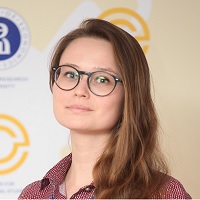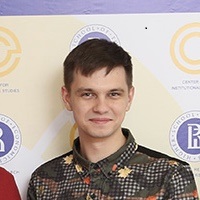Russian Summer School on Institutional Analysis 2019
We can hardly believe it, but the 2019 session of RSSIA has already come to an end! We received more than 100 applications, but only 24 of the strongest research proposals were accepted. Participants came from a wide range of countries: China, Belgium, Germany, India, Iran, Italy, Philippines, and Russia.
The scope of topics ranged from agricultural technology in the Russian Empire and voting preferences to corruption on license plates and incentive contracts in academia.
'Explain your research in 3 minutes. If I don’t understand you in 3 minutes, you probably don’t understand what you are doing,' said John Nye at the welcome ceremony. On the first day, all the participants had to follow this rule and deliver a 3-minutes one-slide presentation. Alexey Samkov, (HSE University), received the best short presentation award for it.
The participants spent the next two days improving their research proposals with each other's help - each participant had to be a discussant of someone else’s work. Natalia Vasilenok (HSE University) provided structured and detailed comments and was chosen as the best discussant.
On the last two days of the summer school, after discussing their research ideas with faculty and fellow participants, everyone had to give conference-style presentations of their research proposals. Laura Comincini (University of Glasgow) and Tom Eeckhout (Ghent University) were awarded for giving the best presentations at RSSIA.
Our Summer School is aimed at helping young researchers look at their proposals from a different angle and improve them significantly. Rutcher Lacaza (University of the Philippines) and Jing Li (Peking University) made significant progress with their research and both of them were awarded for their hard work and progress during RSSIA.
Tom Eeckhout
Ghent University, Belgium
My experience with RSSIA has been terrific. Faculty are very accessible and provide you with specific advice on how to improve yourself as a researcher. Both for me, and I believe also for many other participants, there is an increased understanding of what your research is about. And because of the interactive format in which you get to present your research to your co-participants, the opportunities to provide each other with feedback are abundant. In general, I feel that the school succeeds in striking the right balance between working hard and having fun and making friends. I'm happy I was accepted, I hope to come back, and I would recommend it to anyone working on institutional economics.

Polina Koroleva
HSE University, Russia
I would like to sincerely thank the organizers, participants and the faculty of RSSIA. Thank you for the opportunity to spend a wonderful, productive, incredibly interesting week with you. The organization is at the highest level. Not only the lectures, but also the talks give by fellow participants distinguish this school from others I've been to. And this is what novice researchers really need: a chance to present their ideas in front of an audience, to evaluate the work of colleagues, to get feedback and comments from knowledgeable professors. I really hope to come to this school with a new idea next year. Special thanks to Elena Podkolzina, who for many years now oversees the organization of this school.

Laura Comincini
University of Glasgow, UK
Neatly structured and extremely helpful summer school. The broad range of topics covered during the school exposed us to new ideas, and inspired our research. At the same time, the emphasis on improving our research really pushed us to give our best: the progress I made in a mere 5 days is incredible! I’d definitely recommend RSSIA to anyone with an interest in institutional economics.

Dmitrii Serebrennikov
European University at St. Petersburg, Russia
I was hoping RSSIA would be a 'youg fighter course' for me in institutional studies. The Summer School turned out to be precisely that. I think it is worth going to the school with a high level of knowledge in institutional analysis, because the school is a rare opportunity to present and improve your current research project, consult with well-known experts, and collect valuable feedback from school participants! For example, in a few days, I was able to completely rework my project, and now I clearly understand what direction to take.

Johanna Paquin
Goethe University Frankfurt, Germany
The Russian Summer School on Institutional Analysis was a very useful tool for me to get feedback on my research project from both scholars and peers. Coming together to discuss key issues with people from all over the world with various perspectives and backgrounds was what made this event special. Finally, the very friendly and tolerant atmosphere among all the staff and participants made the summer school the perfect setting for fruitful scientific debate.
We are very thankful to our faculty members who worked hard and tried to help each participant rethink their research ideas and find new methods and approaches to solve problems. We thank our regular faculty members from the Center for Institutional Studies at HSE University: John Nye (George Mason University), Paola Valbonesi (University of Padua), Koen Schoors (Ghent University), and Maria Yudkevich. We are glad that Hartmut Lehmann (University of Bologna and HSE University), Anton Suvorov (HSE University) and Konstantin Sonin* (University of Chicago and HSE University) joined RSSIA as guest faculty members and helped work to make the Summer School even stronger.
24 participants joined the Alumni Club of RSSIA this year and we continue to create a community of young researchers and scholars on institutional analysis in Russia and beyond.
* Константин Сонин включен Минюстом в список физлиц, выполняющих функции иностранного агента.

